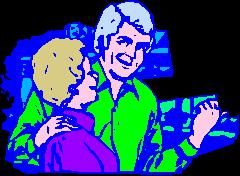Sleep
Zzzzzzzzzzzzzzzzzzzz
If you live in Vegas and don't find it stimulating enough to stay awake, ...
Posted February 23, 2013
It's hard to tell when I first realized my wife and I were an old, crippled couple. No, it isn't. We have stopped "going out." Not on dates, but to events, luncheons, for anything other than the physically necessary, ironically enough. And the reason we have stopped could not be more straightforward. We do not sleep well. By that, I mean that we suck at sleep.

Las Vegas is still in the mythical BCS Top Ten for staying amused after dark.
It takes a special far-reaching dearth of spirit to look at what Las Vegas, Nevada, has to offer after dark and say, "Sorry, gang, I'd love to participate, but I had a hard week of spontaneous napping, and I just can't see myself staying up after 10 P.M. on a Friday or Saturday night any more. Unless I can synchronize my very-early-morning insomnia with my spouse's more effectively in the future." Even if you don't drink, smoke, gamble, open fire on Maseratis on the Strip, or purchase intimate contact with strangers, Las Vegas is still in the mythical BCS Top Ten for staying amused after dark. Sure, teenagers here say, "I'm bored," but unlike those in most other places in the continental U.S., they stop saying it after they turn 21 for fear of appearing seriously unimaginative and perhaps a little clumsy in their “bluffing” (it’s only to be considered “lying” if there is no money involved, we believe). The most willfully jaded hipster you could name would be hard-pressed to stay miserable here after working hours (only professionally).
But somehow, my wife and I have achieved the goal of finding a simple formula for becoming antisocial in the ultimate 24-hour town: We sleep for large and irregular chunks of any given 24-hour period. Attendance at the most routine soiree (e.g. a special event at the Mob Museum) becomes the ultimate unattainable Utopia for us. If one of us is awake, the other one will not be. They're sure. Studies have shown.
Sleeping irregularity goes hand-in-hand with disability. Pain will keep us awake if nothing else does. But there are other roads to fitful sleep, and some disabilities themselves are characterized or defined first and foremost by sleeping disorders. (Fibromyalgia, with which I am on a close personal basis, is one of them.) There is no shame in finding that sleeping exactly eight hours a night is a thing of the past if one is encountering disability in the first person for the first time.

It's hard to tell when I first realized my wife and I were an old, crippled couple. No, it isn't.
Still, there is something relatively comical about an inability to predict for a given two-hour period over a week distant whether one will be fully conscious. I feel a boob for not being able to provide more certainty to the few remaining others who attempt to include us in their social lives. Worse, it is a "condition" that eventually attacks all old people, one that I developed countless B+ material regarding before I became an old person myself (this diagnosis has been confirmed on an independent basis). Now I am hard-pressed to self-identify as one of those superintelligent and dashing crippled young people from movies and television, with one more morsel of evidence to suggest that I am one of those boring and irrelevant old people from the Old Days.
The myth of the no-style disabled person must die. I doubt, however, that Pattie and I will be the ones to kill it: we'll likely be catching up on our sleep when the moment comes to make the mortal move against it. But chronic illnesses are all the more insidious, I would suggest, if they wipe out the luxurious things in the sufferers' worlds, pushing them closer to the stereotype of unspoken but irrevocable commitment to subsistence living. Isn’t having to agree to give up happiness exactly backwards?


